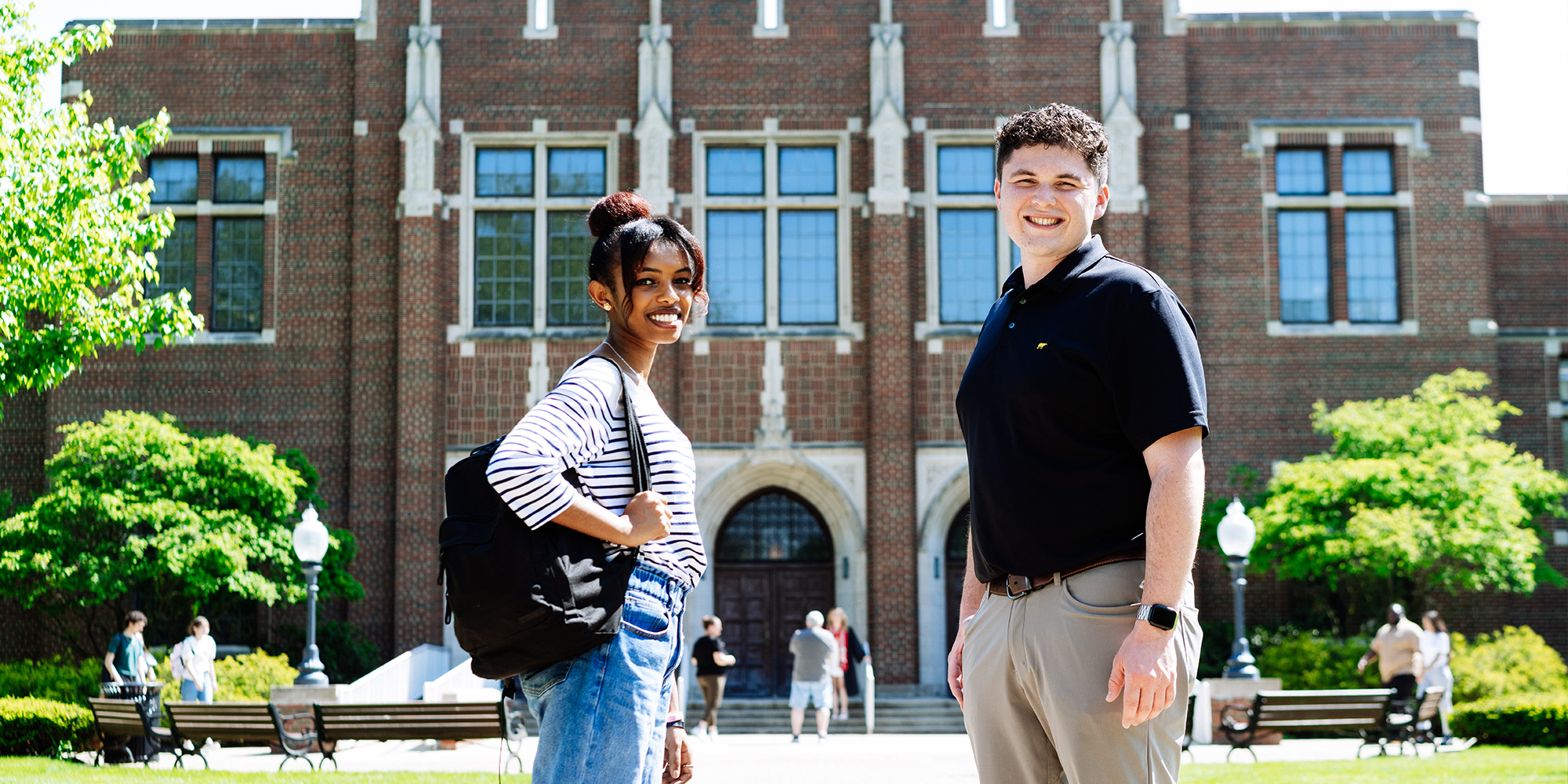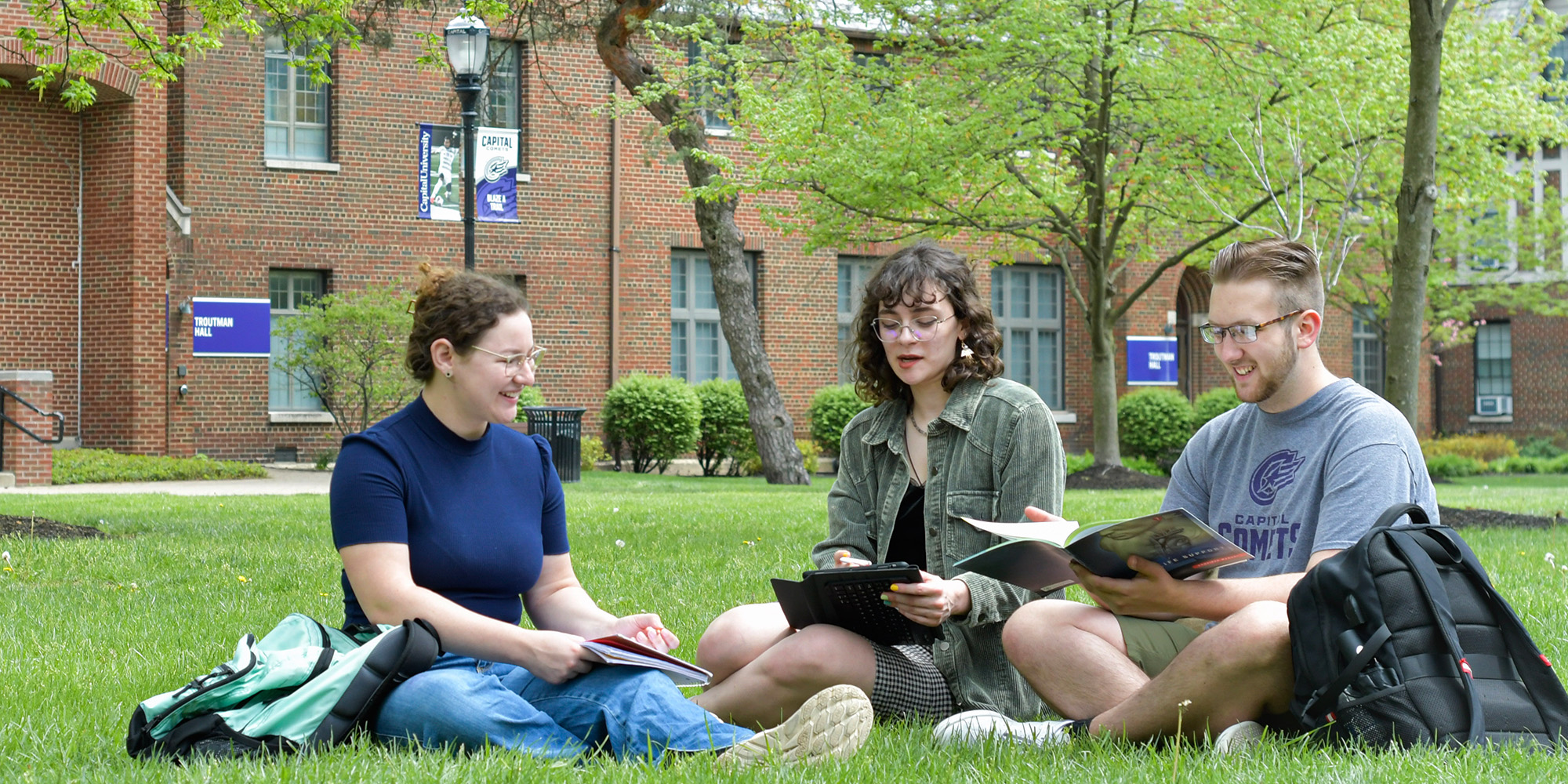Student to Faculty Ratio
Of Students Complete an Internship Before Graduation
Faculty Advising from Start to Finish
Explore this Program
Students gain real-world experience through social services internships, community outreach, campus ministry, youth ministry internships, and worship ministry internships. These experiences allow students to engage with working professionals and supplement their classroom education. The opportunities are endless with Capital’s close proximity to Columbus. Students are encouraged to make a direct impact in their community through internships and volunteer opportunities. Learn how to work with various populations including individuals, groups of all ages, and communities
Religion students develop the ability to think critically and to articulate and defend their own ideas, the ability to think creatively and the capacity to think critically about life and work in a way that honors their own abilities and needs and those of your community. Religion and Philosophy students thrive inside and out of the classroom. All graduates are prepared for a wide range of careers, graduate school, or seminary.
While tough at times, the faculty are dedicated to each and every student and will serve as advisors to students throughout their entire time in the program. As working professionals, faculty often help students find their first internships and are active members of their communities. The Religion faculty also administers the pre-seminary program at Capital, in which students from any major may work toward admission to seminary programs and employment in a wide range of professional ministry settings.
“The academic study of religion is different than going to church. When speaking about faith, we preface that faith is the 'lens' we are looking through. This is really important because we have so many students of various faiths or religious traditions on campus. A college setting is good preparation for how to speak respectfully and to ask questions in a way that offers validity.”
-Moriah Reichert, Religion, Class of 2019

Request Information
Request Information
Schedule a Visit
Schedule a Visit
Apply to Capital
Apply Now